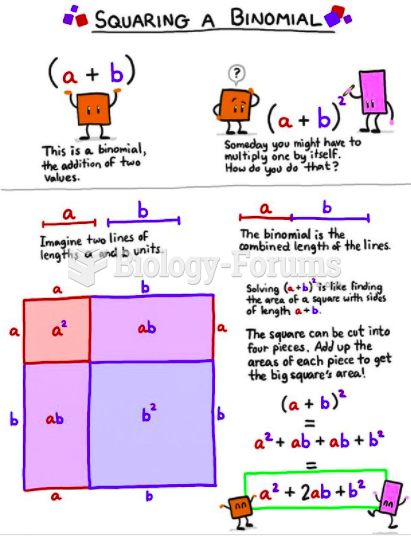|
|
|
For pediatric patients, intravenous fluids are the most commonly cited products involved in medication errors that are reported to the USP.
Illness; diuretics; laxative abuse; hot weather; exercise; sweating; caffeine; alcoholic beverages; starvation diets; inadequate carbohydrate consumption; and diets high in protein, salt, or fiber can cause people to become dehydrated.
People with high total cholesterol have about two times the risk for heart disease as people with ideal levels.
Of the estimated 2 million heroin users in the United States, 600,000–800,000 are considered hardcore addicts. Heroin addiction is considered to be one of the hardest addictions to recover from.
The effects of organophosphate poisoning are referred to by using the abbreviations “SLUD” or “SLUDGE,” It stands for: salivation, lacrimation, urination, defecation, GI upset, and emesis.
 Sphygmomanometry. Photograph of a physician taking blood pressure readings with the use of a sphygmo
Sphygmomanometry. Photograph of a physician taking blood pressure readings with the use of a sphygmo
 Taking a blood pressure is one of the procedures the medical assistant extern may perform under the ...
Taking a blood pressure is one of the procedures the medical assistant extern may perform under the ...




